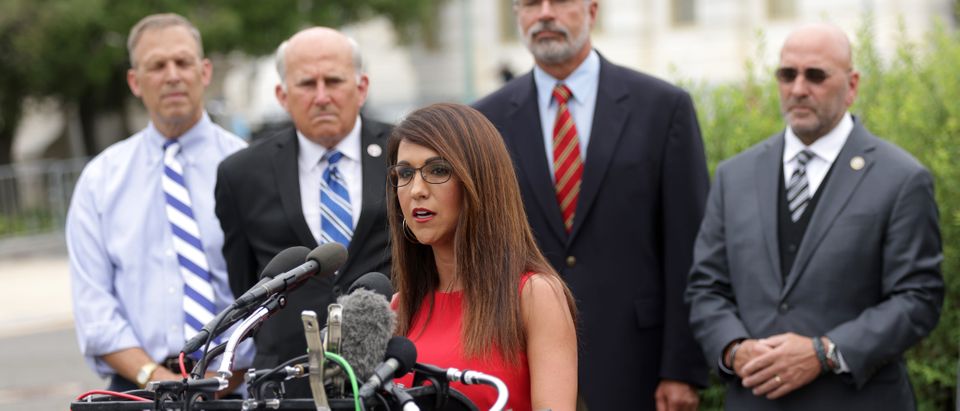
Life, liberty, property, and supporting rights become secure when enough government officials use their constitutional powers against others in government and cronies, limiting them.
The constitutional powers of House legislators are just the powers to vote on bills about statutes, rules of engagement and war declarations, revenue sources and the total budget, and impeachment.
Long-term, House legislators’ votes must help repeal the many existing statutes that are unconstitutional, and enact a small number of new statutes that constitutionally only use enumerated powers and automatically separate powers. But in the near-term, the House legislators’ votes most will be those that help produce an improved majority in the next election.
Now, to produce an improved majority, roll-call votes in which Republican Progressives out themselves as directly opposing the interests of Republican voters will matter most.
A significant increase in such decisive roll-call votes would show that the minority of Republicans, all constitutionalists, who commendably used their constitutional power and obtained concessions, will have turned out to have used their power effectively to help produce an improved majority in the next election. An insignificant increase in such decisive roll-call votes would show that the Republican Progressive speaker candidate Kevin McCarthy will have turned out to have used his power effectively to protect his voting bloc, which is Progressive enough to be our key threat.
Kevin McCarthy reportedly has agreed to either proceed with or schedule votes on a number of changes. We can already tell already which changes will be good, bad, and ugly:
Good
- Bills would be on a single subject. 72 hours of consideration would be required before a bill could come up for a vote. The Rules Committee will include Freedom Caucus members in a proportion of either 23% or 31% of the committee. The Appropriations Committee will include Freedom Caucus members.
- Debt-limit votes would be separate from budget votes. Stand-alone appropriations bills would be voted on. Discretionary spending would be capped. Mandatory spending increases wouldn’t be considered that would occur 5 to 10 years out. Cut-as-you-go would replace pay-as-you-go. Spending earmarks would be voted on. General-appropriation bills would be required to have spending-reduction account sections, which would place the reduced funds out of reach for further appropriation for the remainder of consideration of the bills. General-appropriation amendments that would increase net spending could be blocked by raising a point of order. Budget-reconciliation directives that would increase net spending could be blocked by raising a point of order. Tax-rate increases would require a 60% majority.
- A border-security bill would be voted on.
- A Select Committee on the Strategic Competition Between the United States and the Chinese Communist Party will be set up.
- The McCarthy-backed Conservative Leadership Fund PAC will stay out of primaries in which the seat is open.
- An immediate vote to remove the chair would only require a motion from a single member at any time.
Overall, this is a good deal and would produce better deliberation, better legislation, and — critically — more roll-call votes in which Republican Progressives will out themselves. Once voters can clearly see how their representatives’ votes directly deprive them of life, liberty, and property, they will show up in force in the primaries to kick them out.
Bad
- A term-limits amendment would be voted on.
Term limits would be bad because it would rapidly expel constitutionalist members — including those who won us this potentially great advance—without changing the proven mechanisms that cronies would use to get Progressive replacements elected. A term-limits amendment would be ugly if it were to pass the current House and Senate and be ratified.
Ugly
- A Select Subcommittee on the Weaponization of the Federal Government and other investigative panels would be set up.
Investigations are ugly because they are immediate grossly-unconstitutional legislative grabs of executive power. Those touting a Church-style committee should consider that the Church Committee didn’t lead to any repeals of the security state, or any impeachments and punishments of any members of what is an unconstitutional standing army. Now, that army has turned solidly against We the People.
The speaker deal went forward because the people on each side were confident that their side got the better deal:
- McCarthy can live up to his promises without producing what he and his bloc would consider real change, which they want to prevent. McCarthy can put constitutionalist minorities on committees, and his bloc can join with Progressive Democrats to make any changes that all of these Progressives want. McCarthy can bring up votes favored by the constitutionalist minority, and his bloc will vote down these changes. McCarthy can stop using his current favored PAC and start using another PAC.
- The constitutionalist minority can reap the benefits of more roll-call votes by mobilizing voters to pressure their representatives on which way to vote and to ensure people know what their politicians are doing. Once those operating against their constituents have been outed, constitutionalists should push to have them replaced in the next election.
Unlike in voluntary economic cooperation, in which each side gets more of what it wants the most, in this deal the two sides have diametrically opposed objectives, so this deal likely won’t end up win-win. Whichever side can best mobilize its people and show proper judgment will have the better follow-through.
The constitutionalist members have the voters on their side, and will prove to have made the better deal when roll call votes make true positions and records of the mainline GOP House representatives apparent.
James Anthony is the author of The Constitution Needs a Good Party and rConstitution Papers, publishes rConstitution.us, and has written in Daily Caller, The Federalist, American Thinker, American Greatness, Mises Institute, and Foundation for Economic Education. Mr. Anthony is an experienced chemical engineer with a master’s in mechanical engineering.
https://dailycaller.com/2023/01/09/anthony-roll-call-votes-are-the-republicans-path-to-building-a-larger-constitutionalist-gop-majority/

No comments:
Post a Comment